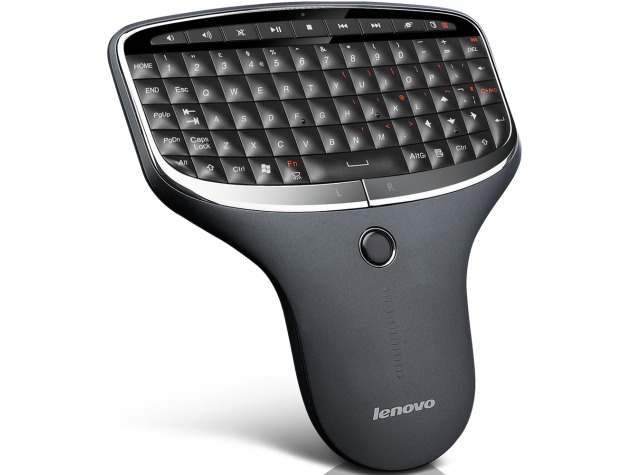Shipments of personal computers fell nearly 11 percent last quarter, to the shock of almost no one. Sales have been declining for so long – 14 consecutive quarters – that it is becoming harder to remember a time when PCs ruled the tech world.
The prolonged slump helps explain why so many of the leading PC makers are scrambling to continue remaking themselves in a world dominated by mobile devices operated with touch, rather than mouse clicks.
Hewlett-Packard is splitting into two entities. Lenovo has branched out into smartphones by acquiring Motorola Mobility. And, in the latest sign of the changes roiling the business, Dell, the world’s third-largest PC company by shipments, is in advanced talks to acquire EMC, the big data-storage company. Such a deal could accelerate a long-running effort by Dell to diversify its business.
Adding to that stew of uncertainty is Microsoft, the technology powerhouse that provides the software for the vast majority of PCs. In recent years, Microsoft has taken the once-unthinkable step of competing with its hardware partners, like Dell and HP, by making its own computers, starting with its Surface tablet. This week, Microsoft dived even further into the business with a laptop device, the Surface Book.
Yet despite all that movement – or maybe because of it – something curious has emerged in recent months: optimism.
“Initiatives like Surface and Surface Book have helped the industry wake up and say, ‘We’ve got to make the industry cool and sexy again,'” said Frank Azor, executive director and general manager of Dell’s XPS line of PCs.
The stated reason that Microsoft got into the PC hardware business three years ago, with the original Surface, was not to put PC companies out of business. The company said the goal was to better illustrate the capabilities of its software, providing devices that would inspire PC makers to be more innovative.
Analysts and industry executives say the strategy may be starting to work. Dell, which still sells millions of PCs, announced Thursday several new machines that run Windows 10, a new Microsoft operating system. One of them, the XPS 12, is similar to Microsoft’s Surface Book, a “two-in-one” device that combines the keyboard of a traditional laptop with a touch-sensing screen that can be detached for use as a tablet.
The Microsoft event Tuesday, where the Surface Book was introduced, generated the kind of buzz from the tech press that’s normally reserved for an Apple event. Apple itself generated discussion last month about whether it had begun to imitate Microsoft by announcing a new big-screen tablet with a stylus, the iPad Pro. The Surface has been available with a big screen and a stylus for some time.
Rahul Sood – a former Microsoft executive who ran a maker of PCs used for video games, which he sold to HP – said PC companies seemed to be asleep when it came to the threats in the market around them, especially from Apple. Microsoft has helped shake them out of it, he said.
“They needed to reignite the PC market,” said Sood, now the chief executive of Unikrn, a games startup in Seattle. “The only company in the world who can do that is Microsoft.”
Jan Dawson, chief analyst at Jackdaw Research, said in a blog post this week that PC makers “have only themselves to blame if Microsoft, which has zero experience in making laptops, is able to produce a more compelling computer” than the far more experienced hardware companies.
It remains to be seen whether these efforts will result in more sales. Microsoft has seen terrific growth in its Surface business, which has jumped to $3.6 billion (roughly Rs. 23,331 crores) in annual sales from nothing three years ago. But most other big PC makers have not been able to get customers to spend on PCs as they once did. PC owners are holding on to their machines longer, making do with systems that are good enough for their needs. At the same time, they are relying on mobile devices for more of their computing tasks.
On Thursday, IDC, a technology research firm, said that global PC shipments declined 10.8 percent in the third quarter from the same period a year ago, slightly worse than the research firm had expected. (Another research firm, Gartner, had pegged the decline at 7.7 percent.)
Those numbers do not include tablets or hybrid devices like the Surface Pro. In recent quarters, the sales of those devices would not have been high enough to tip the overall market into growth, said Jay Chou, an analyst at IDC.
The market has reacted unevenly to all the change. Microsoft’s stock increased 6.6 percent in the past three months, while HP was down almost 4 percent. Dell, in part to avoid investor pressure, went private two years ago.
One of the most remarkable things about Microsoft’s growing presence in the hardware business is that it has not led to open revolt among its partners. Initially, many of them were not happy about Microsoft’s moves, complaining in private.
But more recently they have warmed up. In fact, HP and Dell agreed this summer to sell Surface Pro, Microsoft’s tablet with an optional keyboard cover, to corporate customers through their sales forces.
One reason for the comity is that Microsoft’s Surface business is still relatively small. Another is that the money Microsoft has poured into marketing Surface has raised the broader profile of Windows PCs.
Analysts think Microsoft has other ways of keeping its PC partners happy, such as sharing marketing dollars directly with them for their own advertising campaigns. Microsoft and PC companies would not discuss those arrangements.
Yusuf Mehdi, corporate vice president of the Windows and devices group at Microsoft, says PC companies grasp the bigger picture when it comes to Microsoft’s devices.
He compared Microsoft’s investments in hardware to its Xbox business. Microsoft makes one of the biggest Xbox games, Halo, but independent game publishers benefit because Halo helps sell more Xbox consoles, giving them a bigger market.
“Anyone that grows that market is good for that, and they see it,” Mehdi said. “They’re sophisticated customers.”
PC makers do not have a lot of alternatives to Microsoft. PC makers have released Chromebooks – laptops that run a Google operating system called Chrome OS – but the vast majority of PCs sold still run on Windows. And the way Microsoft understands it, other PC makers will account for most of the computers sold.
“They’re by far the vast majority of our business,” Mehdi said. “No one is confused about that.”
© 2015 New York Times News Service



